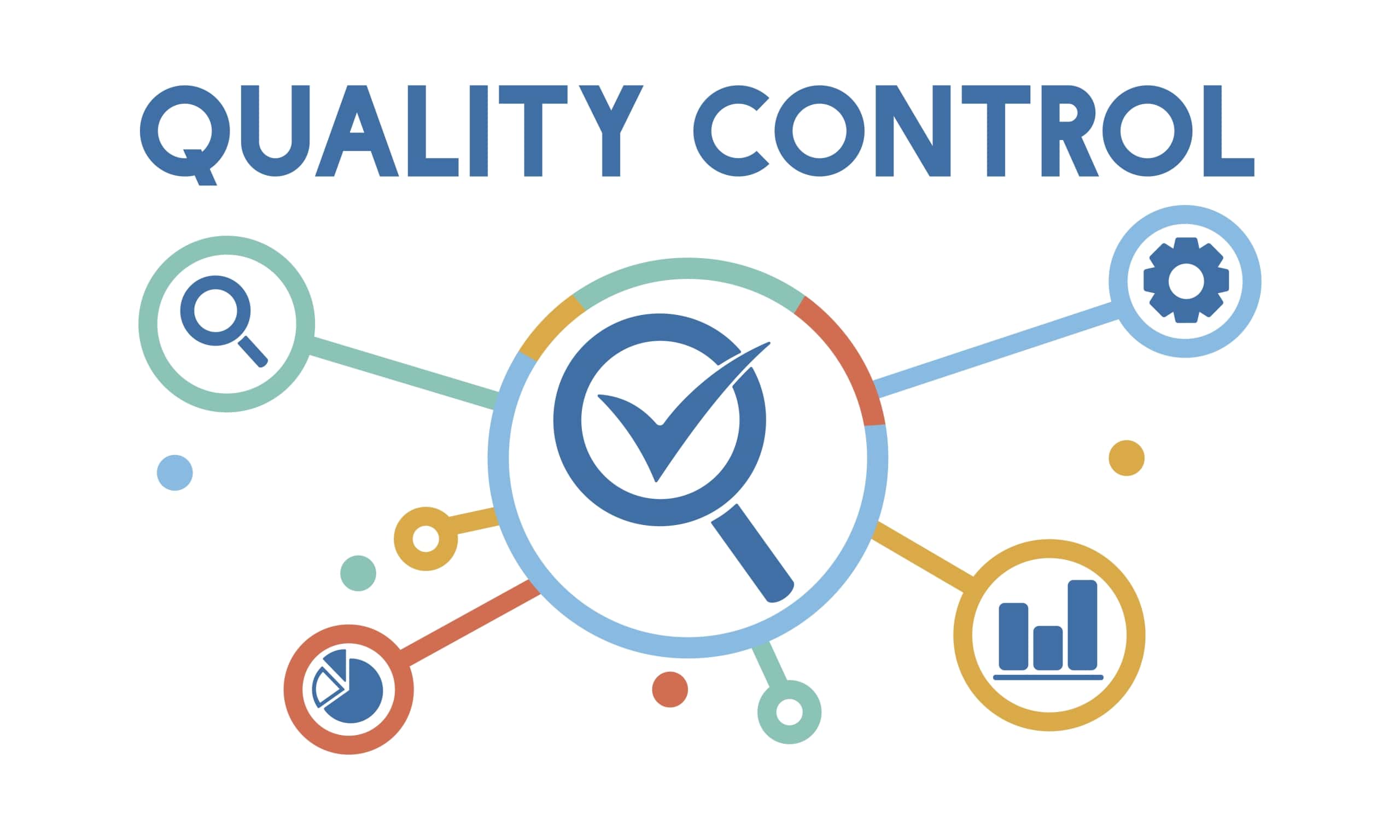1. Real-Time Monitoring for Consistency
The foundation of preserving consistency and quality in contemporary production is real-time monitoring. Operators are essential in making sure that all phases of the production process follow established quality standards. Real-time monitoring enables operators to proactively control the production at the moment, identifying and resolving abnormalities before they affect the final product, in contrast to periodic quality checks that find problems after they occur. By cutting down on waste and downtime, this constant attention to detail helps preserve not just product quality but also operational efficiency.
In actuality, real-time monitoring combines manual observation with the use of cutting-edge technology instruments. To spot departures from ideal performance, operators rely on sensors, automatic warnings, and machine interfaces. This may involve keeping an eye on the accuracy of folding patterns, the uniform distribution of wetness, or the strength of packing seals in the production of wet wipes, for instance. The operator’s involvement in identifying such problems is crucial since any variation in these parameters might lower the quality of the final output.
The capacity of real-time monitoring to offer prompt feedback is one of its main advantages. Operators may quickly fix issues by changing machine parameters like speed, temperature, or pressure to bring output back to the necessary levels. This prompt action guarantees the manufacturing line runs smoothly and avoids expensive disruptions, in addition to preventing faulty items from reaching customers. Operators contribute to the maintenance of a consistent supply of high-quality products without the need for significant rework or waste disposal by addressing possible issues at the source.
Maintaining brand consistency also heavily relies on real-time monitoring. Customers in competitive marketplaces want that every product they buy be of the same high caliber. Customer unhappiness and damage to a company’s reputation might result from a single faulty batch. As the first line of defense for this consistency, operators use their knowledge to decipher real-time data and take appropriate remedial action. By ensuring that every product meets or beyond client expectations, their diligence cultivates consumer loyalty and confidence.
Additionally, real-time monitoring facilitates regulatory compliance, particularly in sectors like food, medicines, and personal care that have strict quality standards. Operators supply the paperwork required for audits and quality certifications by keeping thorough logs of observations and remedial actions made in real time. In addition to meeting compliance standards, this proactive strategy shows a dedication to quality, which may provide a substantial competitive edge in the market.
In addition to these benefits, real-time monitoring aids in predictive maintenance and long-term process optimization. Operators and engineers can see patterns, such as reoccurring issues or slow equipment wear, using the data gathered throughout production. By addressing these issues proactively, wet wipes manufacturers can prevent unexpected breakdowns, extend the lifespan of machinery, and enhance overall production efficiency. Operators play a crucial part in efforts for continuous improvement as they are frequently the first to identify these trends.
Ultimately, real-time monitoring represents more than just a quality control measure; it is a dynamic process that bridges technology and human expertise. Operators are essential to this process because of their acute observational and decision-making capabilities. By ensuring consistent quality in real time, they not only protect the integrity of the product but also contribute to the overall success and competitiveness of the manufacturing operation. Their work emphasizes how crucial it is to combine cutting-edge technology with knowledgeable workers to attain manufacturing excellence.
2. Regular Calibration of Equipment
Operators must perform routine equipment calibration to guarantee that machines run within their designated tolerances and consistently generate high-quality output. Even the slightest change in machine settings can result in serious quality problems in production, such as inaccurate measurements, shoddy assembly, or material waste. By performing accurate and frequent calibration processes, operators help to ensure that these settings remain accurate.
For a given manufacturing run, calibration entails methodically measuring and modifying the equipment to meet the required requirements. For example, calibration may involve adjusting the dispensing speed, aligning cutting mechanisms, or guaranteeing uniform solution application in sectors such as wet wipes production. Production irregularities may result from a lack of attention to detail, which might result in faulty goods or more material waste. To guarantee that machinery runs at its best, operators carry out these duties with a combination of technical know-how and acute attention to detail.
The preventative nature of calibration is a crucial component. Equipment that is calibrated regularly lowers the possibility of unforeseen mistakes or faults during manufacturing. When a machine is moved to a new manufacturing standard or at predetermined intervals, operators perform calibration checks. These inspections frequently entail confirming the correctness of machine parts using reference standards and precision equipment. Operators guarantee that the manufacturing line is prepared to fulfill certain product needs without any delays or interruptions by doing this.
Maintaining adherence to industry standards and certifications also heavily relies on calibration. Equipment must be calibrated to precise specifications in highly regulated industries including pharmaceuticals, food processing, and medical devices due to strict regulations. Operators are frequently in charge of recording these calibration procedures, producing a trustworthy audit trail that shows compliance with quality standards. Keeping thorough records is essential for passing inspections and preserving client confidence.
Additionally, consistent calibration promotes sustainability and long-term cost benefits. Precise equipment saves rework, cuts down on material waste, and prolongs component life by avoiding needless wear and strain. By minimizing waste, operators who place a high priority on calibration assist wet wipes manufacturers in cutting operating expenses and promoting environmentally responsible practices. Their proactive strategy makes sure that machinery operates reliably and effectively, increasing output while consuming the fewest resources possible.
The proficiency of operators in calibration goes beyond simple inspections; they are essential in identifying and resolving calibration-related problems. Operators are frequently the first to notice issues when equipment starts to deviate from specifications because of wear, harsh usage, or environmental reasons. They protect both product quality and operational efficiency by quickly recalibrating to stop small deviations from turning into significant production failures.
Last but not least, operators’ involvement in equipment calibration is a reflection of their larger role in promoting a quality-conscious production culture. Their commitment to accuracy and reliability enables businesses to maintain the reputation of their brands and provide goods that either match or surpass the expectations of their clients. In addition to ensuring high standards in the short term, operators who maintain properly calibrated equipment also help the organization succeed in the long run. Through their work, they demonstrate how crucial human skill is to the management of sophisticated production technology.
3. Conducting Quality Checks at Critical Points
A key component of efficient manufacturing is carrying out quality checks at crucial stages of the production process. Before proceeding to the next phase of manufacturing, operators are in charge of carrying out these checks to make sure the final product satisfies predetermined requirements. Only goods that meet the highest quality standards are delivered to customers thanks to this proactive strategy, which also saves time, money, and resources by identifying and fixing flaws early.
Raw material inspection is frequently the first step in critical quality inspections. Operators check that materials fulfill requirements such as size, weight, texture, and chemical composition before they reach the manufacturing line. For instance, when making wet wipes, the materials used for both the wipes and the container need to adhere to strict standards for compatibility, durability, and moisture retention. By identifying variations early on, flaws are stopped from spreading to later stages of manufacturing.
Operators conduct quality checks at intermediate points in the production process to guarantee accuracy and consistency. Measurements, alignment checks, assembly inspections, and functional property testing are a few examples of these tests. Operators keep an eye on machine outputs and sensor data in automated operations to make sure everything stays within limits. For example, during folding and cutting, operators may check that each fold is accurate and that the cuts are neat and in line with the product design. Finding problems early on preserves the manufacturing run’s overall integrity.
Final-stage quality inspections are frequently more thorough and just as important. Operators inspect completed goods to make sure they satisfy all safety, aesthetic, and quality standards. Visual inspections, functional testing, or the use of sophisticated technologies to gauge adherence to technical standards may all be part of this step. To guarantee performance and durability, sample items are occasionally put through environmental conditions or stress testing. For instance, before the items are dispatched, wet wipes production workers may verify that the package is uniformly aesthetically pleasing, well sealed, and has sufficient moisture levels.
Documentation is a crucial component of these quality assessments. In order to provide a verifiable record of adherence to quality standards, operators document the outcomes of tests and inspections. For audits, troubleshooting, and continuous improvement projects, this material is quite helpful. Customers and government agencies are also reassured that the production process is dependable and under control.
Crucial quality checks are also essential for preserving consumer happiness and brand recognition. By identifying and fixing problems early, operators make sure that only perfect products make it to market. This lessens the possibility of recalls, refunds, or unfavorable reviews—all of which can hurt a business’s reputation in cutthroat industries. Additionally, by reducing waste and rework, these checks improve operational efficiency, which immediately lowers costs and promotes sustainability.
Operators are essential in carrying out these quality checks because of their knowledge and meticulousness. To provide thorough oversight, they integrate insights from automated systems with manual inspection procedures. Their capacity to spot trends in reoccurring flaws may also direct process enhancements, lowering the likelihood of problems down the road and improving overall production quality.
In conclusion, by bridging the gap between raw materials and completed items, operators have a vital obligation to perform quality checks at important points. Their attention to detail guarantees that all manufacturing phases comply with quality standards, halting the progression of flaws and protecting the wet wipes manufacturer’s and the customer’s reputations. This duty emphasizes how important human skill is to producing reliable, superior results in contemporary industry.
4. Troubleshooting and Immediate Corrective Actions
Unexpected problems might occur at any point during production in the dynamic environment of manufacturing. Since operators are leading the charge in tackling these issues, one of their most important duties is diagnosing and putting quick fixes in place. This capacity to recognize, evaluate, and address issues quickly guarantees continuous production, reliable product quality, and reduced downtime.
The operator’s ability to recognize issue signs is the first step in troubleshooting. Experienced operators are adept at spotting anomalies that automated systems would miss, whether it’s a machine problem, a product flaw, or an abnormality in production data. For instance, in the production of wet wipes, a little problem like uneven folding might become a batch-wide flaw if it is not fixed right once. To identify such problems early, operators rely on their technical expertise and astute observational abilities.
Operators diagnose the underlying source of an issue after it has been recognized. Examining machine parts, examining production statistics, and taking into account recent modifications to materials or settings are all common steps in this process. For example, an abrupt shift in product quality might be attributed to environmental conditions like humidity, defective raw materials, or improper machine calibration. To identify the root of the problem and make sure their remedial measures are focused and successful, operators use reason and a systematic approach.
The next stage in fixing production problems is to take immediate remedial action. To resume regular operations, operators might reset machinery, change out broken parts, or modify machine settings. For instance, operators can adjust the pressure settings to address a sealing machine’s inability to deliver constant pressure. Prioritizing quality and safety over production speed, they may occasionally momentarily cease production to carry out repairs or confer with maintenance teams.
In order to avoid cascade consequences that might interrupt the entire production line, it is essential to be able to react quickly to issues. Delays can lead to more waste, lengthier downtimes, and monetary losses. Operators assist preserve operational efficiency and guarantee that only high-quality items proceed in the production process by swiftly resolving concerns.
Technical solutions are only one aspect of troubleshooting and remedial measures. Additionally, operators are essential in recording the problems they face and the actions they take to fix them. Wet wipes manufacturers may find trends, solve persistent issues, and streamline procedures with the help of this documentation, which offers insightful information for continuous improvement initiatives. For instance, if a certain machine keeps having the same problem, the information that operators record might assist engineers in redesigning or improving the machinery to improve performance.
Communication is another facet of troubleshooting. To put successful solutions into practice, operators frequently work in conjunction with engineers, maintenance teams, and quality assurance staff. When leading these teams, their direct understanding of the problem and its background is quite helpful. In order to lessen the possibility of future issues, operators may also suggest preventative actions like updated standard operating procedures or more frequent maintenance.
Operators’ flexibility and decision-making abilities are also demonstrated by their troubleshooting functions. Fast-paced, modern production environments necessitate rapid thinking. Operators have to strike a balance between the necessity for precision and thoroughness and the urgency of fixing problems. The integrity of the product and the flow of production depend on their capacity to make wise judgments and stay composed under duress.
To sum up, troubleshooting and quick fixes are essential to maintaining seamless and effective production processes. Quick problem-solving and diagnosis by operators reduce interruptions, preserve product quality, and boost wet wipes manufacturing process productivity overall. Their position emphasizes how crucial it is to combine technical know-how, analytical abilities, and proactive communication in order to successfully manage the complexity of contemporary production lines.
5. Documenting Quality Metrics
Maintaining high standards and guaranteeing ongoing progress in manufacturing processes depend heavily on operators’ ability to document quality measurements. This work entails documenting important information and findings on the caliber of output and manufacturing processes. These metrics offer an impartial framework for assessing performance, seeing patterns, and putting required enhancements into action.
During manufacturing, operators closely monitor several quality factors before starting the documentation process. Dimensions, weight, material integrity, machine settings, and product performance are frequently examples of these criteria. In the production of wet wipes, for example, operators may record information on moisture content, folding accuracy, sealing power, and packing uniformity. Operators generate a thorough record that accurately depicts the caliber of every manufacturing batch by recording this data in real time.
Because it allows for traceability, quality metrics documentation is crucial. These data enable producers to identify the underlying reason of a quality issue and quickly implement remedial measures. Operators can examine the recorded data, for instance, to ascertain if the problem was caused by ambient factors, machine calibration, or material variation if a batch of wet wipes is discovered to have uneven moisture levels. This traceability not only aids in the immediate resolution of issues but also stops them from happening again.
Documentation also helps ensure that industry rules and quality standards are followed. To prove compliance with safety and performance standards, several businesses, including food processing, medicines, and personal care goods, need thorough quality records. Maintaining these documents, making sure they are correct, comprehensive, and easily accessible for audits or inspections, is frequently the responsibility of operators. In certain instances, these records also demonstrate the wet wipes manufacturer’s dedication to quality, boosting its reputation with clients and authorities.
The function that quality measurements serve in data-driven decision-making is another benefit of recording them. The basis for evaluating production efficiency, identifying bottlenecks, and streamlining procedures is the data gathered by operators. Regularly recording machine performance and product quality, for instance, may show trends that point to the need for process modifications or preventative maintenance. Wet wipes manufacturing teams can use this data efficiently because to operators’ thorough documentation, which promotes a continuous improvement culture.
From manual logbooks to complex digital systems, operators frequently employ cutting-edge equipment and software to record quality measurements. These technologies make the documentation process more effective and actionable by enabling real-time data entry, automated computations, and trend visualization. Operators who have received training in these systems may make a substantial contribution to improved quality control and faster operations.
Additionally, recording quality measurements promotes responsibility on the manufacturing floor. Operators become more conscious of how their activities affect overall quality when they assume responsibility for documenting and evaluating these indicators. Because of this understanding, operators are more inclined to be proactive and seek out and resolve such problems before they become more serious. Because recorded data offers a common point of reference for talking about quality enhancements with colleagues and supervisors, it also fosters cooperation.
Lastly, thorough documentation of quality measures contributes to the development of client trust. Comprehensive records show that the firm can reliably satisfy client requirements and has strict quality control procedures in place. This transparency positions the wet wipes manufacturer as a trustworthy and knowledgeable partner in competitive marketplaces, making it a desirable differentiator.
To sum up, recording quality measurements is a fundamental procedure in contemporary production that improves compliance, traceability, and ongoing development. In addition to protecting product quality, operators’ meticulous attention to detail and dedication to thorough record-keeping offers priceless insights for streamlining production procedures. Their contribution to this crucial duty emphasizes how crucial it is to combine operational knowledge with a methodical approach to quality control.
6. Adhering to Standard Operating Procedures (SOPs)
Consistent and effective production operations are based on following Standard Operating Procedures (SOPs). SOPs are comprehensive, step-by-step instructions that specify how to do particular jobs or procedures correctly. Operators may be guaranteed that all production operations comply with the company’s quality standards, legal requirements, and safety precautions by adhering to these processes. The entire dependability and uniformity of the production process are directly impacted by their dedication to following SOPs.
SOPs remove uncertainty and lower the possibility of mistakes by giving operators a defined framework for carrying out their responsibilities. SOPs guarantee that all operators handle duties like material handling, machine setup, calibration, and quality checks in the same way by standardizing these processes. To ensure constant product quality throughout production batches, this consistency is essential. An SOP could specify the exact steps for loading ingredients, modifying machine settings, and evaluating the finished product, for instance, in the production of wet wipes. By adhering to this rule, operators may minimize variability and consistently achieve the intended outcomes.
Following SOPs is crucial for maintaining compliance with industry requirements as well as guaranteeing consistency. Strict regulatory regulations are in place to safeguard consumer safety in several industries, including food processing, personal care, and medicines. By defining procedures that adhere to legal and industry standards, SOPs assist operators in navigating these obligations. To avoid contamination, a SOP can outline the methods for cleaning and sanitizing the machinery used to produce wet wipes. Operators guarantee that the finished product satisfies hygienic requirements and passes regulatory inspections by adhering to these protocols.
SOP adherence’s contribution to worker safety is another crucial component. Safety procedures are crucial in manufacturing settings as they frequently contain dangerous chemicals and intricate technology. SOPs provide guidelines for managing raw materials, operating machinery properly, and addressing crises. Operators who strictly adhere to these protocols lower the possibility of mishaps and make their workplace safer for both themselves and their coworkers. To prevent potential danger and damage, an SOP may, for instance, outline how to shut down a machine in the event of a malfunction.
Following SOPs also reduces production downtime and increases efficiency. Operators can complete jobs more quickly and precisely with clear instructions, which minimizes the need for rework or troubleshooting. When problems do occur, operators can consult the SOPs for advice on how to handle them successfully. This methodical technique reduces interruptions and guarantees that production stays on schedule. Additionally, SOPs frequently contain backup plans for typical concerns, allowing operators to handle problems without waiting for supervisory assistance.
SOPs are updated and improved in part by operators. Their practical expertise offers important insights into how processes are applied in real-world situations and possible areas for improvement. To reduce time without sacrificing quality, an operator can recommend, for instance, simplifying a step in the material handling procedure. As production technology and needs change, operators may assist in guaranteeing that processes stay applicable and efficient by participating in the growth of SOPs.
Following SOPs has additional advantages when it comes to onboarding and training new operators. As a training tool, thorough and unambiguous SOPs help new team members pick up procedures fast and with assurance. Skilled operators may help new hires adhere to these protocols, guaranteeing a smooth transition and preserving output of the highest caliber.
Last but not least, rigorous adherence to SOPs promotes an accountable and disciplined culture inside the company. Operators who adhere to these rules regularly show professionalism and a dedication to quality. This methodical strategy strengthens the manufacturer’s reputation for dependability and quality by fostering trust among managers, coworkers, and clients.
To summarize, operators have a crucial duty to follow SOPs, which are the foundation of all effective production processes. SOPs offer a path to excellence, from improving safety and efficiency to guaranteeing product consistency and regulatory compliance. Maintaining high standards, encouraging continual development, and finding long-term success in the cutthroat industrial sector all depend on operators’ commitment to adhering to and improving these processes.
7. Proactive Communication
A key component of an operator’s duties in preserving product quality and guaranteeing smooth production operations is proactive communication. Operators serve as liaisons between several teams, including management, maintenance, and quality assurance, in a dynamic production setting. By exchanging precise and timely information, they promote cooperation, avert any problems, and promote ongoing development.
Real-time reporting of deviations or abnormalities by operators is the first step towards effective proactive communication. Operators may stop minor issues from growing into more significant interruptions by promptly reporting any anomalies they observe in machine performance, material quality, or product standards. For example, alerting the maintenance crew right away if an operator notices an odd noise or vibration in a machine helps prevent possible malfunctions and expensive downtime. This method guarantees consistent product output while conserving resources.
In addition to reporting problems, operators are essential in exchanging ideas and observations from their day-to-day work. Their practical expertise offers insightful input that helps guide decision-making and process enhancements. For instance, an operator might advise supervisors or technical teams that a specific machine configuration leads to increased efficiency or improved quality. These realizations frequently result in process optimization, which raises output levels overall.
Coordinating across many teams and shifts also requires proactive communication. Operators provide the incoming crew with vital information on current problems, finished maintenance, or particular changes made during their shifts. This continuity guarantees that all team members are informed of the current priorities or issues and that production proceeds without hiccups. For instance, the explicit communication from the leaving operator guarantees that the incoming operator may promptly address the need for recalibration of a machine after a particular batch.
Furthermore, operators frequently work as liaisons for quality assurance groups, offering up-to-date information and observations throughout audits or inspections. Their capacity to clearly state problems and offer corroborating evidence, such as logs or metrics, contributes to a transparent and effective auditing procedure. The significance of their role in upholding adherence to legal and quality standards is further reinforced by this partnership.
Proactive communication is even more important in high-pressure scenarios, such as when production deadlines are close or unforeseen difficulties occur. Clear and effective communication between operators and team members may aid in work prioritization, resource allocation, and disruption impact reduction. For instance, an operator can promptly notify the management and procurement teams of a material shortfall if it is discovered during a shift, allowing them to identify a solution before the production schedule is jeopardized.
Proactive communication among operators also includes exchanging opinions about tools, procedures, and systems. Operators frequently engage with sophisticated machinery and software interfaces in contemporary production settings where automation and data-driven technologies are commonplace. Their feedback on these technologies’ usability and efficacy is crucial for spotting areas that might require innovation or enhancement. An operator may, for example, recommend a change to a machine’s user interface that would facilitate the interpretation of real-time data, which would be advantageous to the entire production team.
Proactive communication also promotes a culture of responsibility and cooperation. Operators foster a cooperative atmosphere where everyone is committed to reaching shared objectives when they actively engage in conversations, voice issues, and exchange ideas. In addition to enhancing problem-solving skills, this open communication fosters trust between management, supervisors, and coworkers.
Lastly, when necessary, proactive communication fosters closer bonds with external stakeholders like suppliers or consumers. In order to respond to client questions or supplier concerns, operators may be asked to give firsthand descriptions of manufacturing procedures or difficulties. The company’s professionalism and dependability are increased by its ability to boldly and clearly communicate technical data.
To sum up, effective industrial operations rely heavily on proactive communication as it allows operators to quickly resolve problems, exchange insightful information, and promote teamwork. Their capacity for efficient communication with both internal and external teams is essential for upholding high standards of quality, streamlining procedures, and guaranteeing smooth operations. The success and robustness of the production process are greatly enhanced by operators’ emphasis on proactive communication.
8. Training and Knowledge Sharing
In order to guarantee the ongoing enhancement of industrial procedures and the skill development of the workforce, operators have a crucial responsibility to share information and provide training. As seasoned experts, operators are essential in training new employees, encouraging a culture of learning, and adding to the team’s overall knowledge. Their capacity to efficiently exchange information improves team cohesiveness, product quality, and overall operational efficiency.
When new workers enter the manufacturing floor, operators are frequently their initial point of contact. Beyond academic principles, they offer hands-on, practical instruction that helps newcomers grasp the subtleties of machines, procedures, and quality standards. For instance, in the production of wet wipes, operators may show how to diagnose typical equipment problems or modify machine settings to get the required moisture levels. New hires acquire confidence and swiftly adjust to the production environment with the aid of this individualized instruction.
Operators are essential in upskilling the current staff in addition to onboarding new hires. Operators frequently receive enhanced training as manufacturing technologies improve to keep current on new equipment, automation systems, or production techniques. After becoming skilled, they impart their expertise to colleagues, guaranteeing that the team as a whole is prepared to use the newest tools efficiently. An operator skilled in IoT-enabled monitoring systems, for example, may instruct colleagues on how to analyze real-time data and apply it to improve the quality of their products.
Sharing knowledge also includes lessons acquired from day-to-day operations and best practices. From their practical expertise, seasoned operators frequently get useful ideas, such as effective methods for material management, waste reduction, or machine performance enhancement. In addition to increasing individual productivity, sharing these insights with the team supports efforts for continual development. An operator may, for instance, offer advice on how to reduce downtime during machine changes, which might be implemented as a routine procedure for all shifts.
Additionally, operators help develop and improve training resources including troubleshooting manuals, instructional films, and standard operating procedures (SOPs). Operators guarantee that vital information is maintained and easily accessible for both present and future team members by recording their experience and offering clear, easily navigable resources. When seasoned operators retire or move away, this approach is very helpful in avoiding knowledge gaps.
Establishing a culture of cooperation and support for one another is a crucial component of training and knowledge exchange. Operators who freely share their knowledge inspire others to follow suit, fostering an atmosphere where team members feel free to ask questions, seek assistance, and share ideas. Because different viewpoints and experiences are exchanged and incorporated into the workflow, this culture not only fosters creativity but also improves team ties.
Sharing knowledge is also essential to ensuring compliance and safety. Operators make sure that everyone on the team is aware of and follows safety regulations, equipment handling guidelines, and quality standards. Operators contribute to accident prevention, product integrity, and industry-standard compliance by keeping their peers informed about changes in legislation or best practices regularly.
The advantages of training and information exchange are particularly noticeable in high-pressure scenarios, such as when production goals are strict or unforeseen difficulties occur. Effective troubleshooting, fast adaptation, and productivity maintenance are all possible in teams of skilled operators who have a shared understanding of processes and procedures. This preparedness results from the shared knowledge and cooperative learning that seasoned operators have fostered.
Finally, by reaffirming their positions as leaders and production floor experts, training and information exchange empower operators themselves. Their morale and job satisfaction are raised when their efforts in team building and process improvement are acknowledged, which inspires them to keep doing well in their positions.
To sum up, information exchange and training are essential elements of contemporary production. In addition to facilitating the seamless onboarding of new team members, operators’ capacity for collaboration, mentoring, and education promotes continuous advancements in productivity, quality, and safety. In order to create a staff that is competent, unified, and prepared for the future, operators must prioritize and invest in these duties.
9. Championing Safety and Hygiene Standards
Operators have a fundamental duty to promote safety and hygienic standards, especially in sectors where worker welfare and product integrity are critical. Operators are essential to preserving a hygienic and safe manufacturing environment, guaranteeing legal compliance, and safeguarding the workers and end users. Their attention to detail, compliance with procedures, and proactive measures lay the groundwork for dependable, superior production processes.
Safety in production settings begins with operators rigorously adhering to and enforcing defined safety procedures. Wearing personal protection equipment (PPE), using machinery properly, and following safety protocols when handling dangerous products are all examples of this. For instance, in the manufacturing of wet wipes, operators may make sure that chemical solutions or disinfectants are used and kept properly to avoid contamination or spillage. By supporting these procedures, operators contribute to a decrease in workplace accidents and guarantee a safe working environment for their coworkers.
Standards for hygiene are similarly important, particularly in sectors like food, medicine, and personal care. Operators are in charge of making sure that all tools, equipment, and surfaces are cleaned and sterilized by established protocols. In the production of wet wipes, this might entail sterilizing equipment, cleaning solution-dispensing nozzles, or keeping packing regions dust-free. These steps satisfy legal criteria, guarantee product safety, and stop contamination.
In order to spot any possible safety or hygienic hazards, operators also keep an eye on the production environment. They can identify problems like deteriorated equipment, clogged ventilation systems, or unhygienic situations because of their practical experience with machines and procedures. An operator may, for example, quickly report a leaky pipe for maintenance if they see it endangering the sterility of a production area. This proactive strategy stops little problems from becoming bigger ones.
Apart from their regular duties, operators frequently actively participate in safety awareness and training initiatives. By illustrating appropriate methods and stressing the repercussions of non-compliance, they instruct team members and recruits on the value of safety and cleanliness. Operators may, for instance, hold seminars on emergency procedures, such as how to use fire extinguishers or react to chemical spills. These initiatives guarantee that all employees are knowledgeable about and equipped to enforce safety regulations.
Another crucial component of an operator’s job is adhering to safety and hygienic laws. To safeguard customers and workers, regulatory agencies frequently enforce stringent criteria, which operators make sure are regularly fulfilled. This includes keeping track of cleaning schedules, recording safety and hygienic procedures, and taking part in audits and inspections. Operators assist businesses in avoiding fines, preserving certifications, and gaining the trust of clients by promoting these practices.
Promoting a culture of accountability and ongoing development is another aspect of promoting safety and hygiene. By setting an example, operators show that hygiene and safety are not only duties but also organizational values. They support their colleagues in reporting hazardous situations, making suggestions for enhancements, and actively taking part in keeping the workplace safe and hygienic. This cooperative strategy guarantees a shared dedication to excellence and boosts team spirit.
Additionally, operators support sustainability by putting in place hygienic and safety procedures that reduce waste and resource usage. For example, they could support water-saving sanitization techniques or environmentally friendly cleaning products. These procedures uphold strict hygienic standards while supporting more general environmental objectives.
Operator adherence to these standards is essential in high-stakes sectors where even small safety or hygiene violations can have serious repercussions. Their actions preserve the company’s image for dependability and quality, safeguard the health of their coworkers, and shield customers from tainted goods.
In summary, operators play a critical role in safeguarding both people and products by advocating for safety and hygienic standards in manufacturing. They guarantee that safety and cleanliness stay at the forefront of industrial operations through their knowledge, attention to detail, and leadership. Achieving operational excellence, regulatory compliance, and customer trust all depend on their efforts.
10. Participating in Continuous Improvement Programs
Programs for continuous improvement, which aim to increase the effectiveness, sustainability, and quality of industrial processes, heavily rely on operators. These initiatives, which seek to cut waste, boost production, and guarantee constant product quality, frequently make use of approaches like Lean, Six Sigma, or Kaizen. Because they have direct experience with day-to-day operations, operators offer priceless ideas and actively participate in finding areas for improvement and putting solutions in place.
The capacity of operators to spot inefficiencies or persistent problems in the manufacturing process is a crucial component of their involvement in continuous improvement. They have a unique view of any bottlenecks, inefficient procedures, or quality variances because of their intimate contact with equipment and materials. An operator may notice, for example, that certain equipment always has to be adjusted to match requirements, indicating the need for maintenance or a redesign. Operators start the process of improvement by alerting engineers or supervisors to these insights.
In efforts for continual improvement, operators also help with ideation and solution creation. Their hands-on knowledge enables them to provide feasible, workable adjustments that complement production objectives. For instance, operators may suggest modifying machine sequences for more efficient workflows or improving material loading methods to minimize scraps during a Lean campaign to decrease waste. Their active participation guarantees that initiatives for improvement are based on operational realities and have a higher chance of success.
The experience of operators is frequently necessary for the execution of improvement projects. On the manufacturing floor, they play a crucial role in testing new procedures, equipment, or techniques. Operators are usually in charge of incorporating these technologies into regular operations and provide feedback on their efficacy, for example, if a Six Sigma project calls for adding sensors to track machine performance. With their guidance, the solution is improved to provide the desired results without interfering with operations.
Operators not only contribute to particular projects but also continuously support a continuous improvement culture. By always looking for methods to improve productivity or quality, they encourage their peers to follow suit. This proactive strategy fosters a positive cycle of improvement throughout the company by motivating teams to continue being watchful for and responding to chances for improvement.
Involving operators in initiatives for continuous improvement also requires training and information exchange. Operators frequently take the initiative to teach their peers when new procedures or tools are put into place, making sure that enhancements are smoothly embraced by teams and shifts. For instance, operators may hold training sessions to illustrate the usage and advantages of a new quality-checking technique after it is introduced, guaranteeing uniform implementation across the workforce.
Another way that operators support ongoing development is through documentation. They provide a clear picture of the impact of the program by documenting data and metrics before to, during, and following the implementation of changes. These documents are crucial for assessing how well improvement initiatives are working and pinpointing areas that still require improvement. The thorough documentation done by operators guarantees that the knowledge gained from each endeavor is retained and can guide subsequent initiatives.
Sustainability objectives are another aspect of operators’ participation in programs for continual development. Initiatives to lessen the environmental impact of industrial processes can be fueled by their insights into material usage, energy consumption, and waste generation. To save money and practice environmental stewardship, an operator can recommend, for example, changing machine settings to utilize less energy during off-peak production periods.
Lastly, operators’ professional development and work satisfaction are improved when they take part in continuous improvement initiatives. By taking part in these programs, people develop their abilities, get a deeper comprehension of production procedures, and contribute visibly to the success of the company. In addition to helping the operators directly, this empowerment improves the production team’s overall skills.
To sum up, operators are essential contributors to programs for continuous improvement because they use their knowledge and skills to create significant improvements. Their capacity to spot inefficiencies, help create solutions, and put new procedures into place guarantees that these initiatives will continue to have positive effects. Operators are essential to sustaining competitive manufacturing operations that place a high value on quality, efficiency, and innovation by adopting a culture of continuous improvement.
11. Role in Sustainability
Operators are essential in promoting sustainability in industrial processes because they help close the gap between daily operations and corporate sustainability objectives. Their activities have a direct influence on the factory floor’s energy efficiency, waste management, and resource use. Operators play a crucial role in sustainable manufacturing as businesses work to satisfy environmental requirements and customer demands for eco-friendly procedures.
Reducing manufacturing waste is one of the main ways operators promote sustainability. Because of their experience, they are able to maximize the use of materials, guaranteeing that resources are used effectively and that the amount of scrap or faulty goods is minimized. Operators can adjust machinery in the production of wet wipes, for instance, to minimize material overcuts, stop solution spills, or guarantee accurate packing. These changes lessen the environmental effect of disposing of extra material while also saving money.
Another crucial area in which operators support sustainability is energy efficiency. Operators may guarantee that energy consumption is minimized without sacrificing production quality by keeping an eye on and modifying machines. Operators may, for example, find ways to minimize idle time or run equipment at peak rates, which would eliminate needless power use. They may also report concerns like hot equipment or inefficient motors, which will enable maintenance staff to take care of them before they become worse.
Additionally, operators are essential in promoting the use of sustainable raw resources. Operators make sure that eco-friendly products are handled properly as more wet wipes manufacturers switch to recyclable packaging or biodegradable substrates. Their ability to modify machine settings to accept these materials is essential to preserving the effectiveness of production and the caliber of the final output. For instance, operators may need to modify sealing temperatures or machine speeds when switching to biodegradable wipes to prevent harming the sensitive material.
The operators’ participation in recycling and resource recovery initiatives is another facet of their sustainability duty. Waste or leftovers from many manufacturing processes can be recycled or used for other purposes. Operators are frequently in charge of sorting recyclables and making sure they are prepared correctly for future use. In certain instances, they could also help run equipment intended for resource recovery, including systems that turn manufacturing waste into materials or energy that can be used again.
By taking part in environmental stewardship-focused training and awareness initiatives, operators further support sustainability. They may include eco-friendly methods into their everyday job by keeping up with the most recent sustainable practices. An operator who has received training in water conservation techniques, for example, may find ways to use less water when cleaning equipment, which would save money and the environment.
They also keep an eye on and repair equipment to avoid environmental concerns as part of their sustainability responsibilities. When machinery is properly maintained, it runs smoothly and doesn’t release any pollutants or hazardous materials. Operators who conduct routine equipment inspections and report possible problems, including leaks or excessive emissions, contribute to ensuring that environmental rules are followed and lessen the ecological impact of the factory.
Additionally, operators frequently use data collecting and reporting to support sustainability objectives. Metrics including trash production, energy use, and material utilization are recorded, offering useful information for monitoring the advancement of sustainability objectives. Management teams may use this data to assess the efficacy of present procedures and pinpoint areas in need of development. The thorough documentation provided by operators guarantees responsibility and transparency in environmental initiatives.
On the manufacturing floor, operators also contribute to the development of a sustainable culture. Their behavior and demeanor have the power to sway their peers, promoting the team’s adoption of environmentally friendly procedures. The impact of sustainable projects is increased when operators support them by encouraging others to follow suit, such as cutting back on trash or using less energy.
To sum up, operators are essential to attaining industrial sustainability. They contribute to waste reduction, energy conservation, and resource optimization via their knowledge, initiative, and dedication to environmental stewardship. In addition to improving the effectiveness and environmental friendliness of production processes, operators may help create a more sustainable future for the business and a healthier world by coordinating their daily work with more general sustainability goals.












